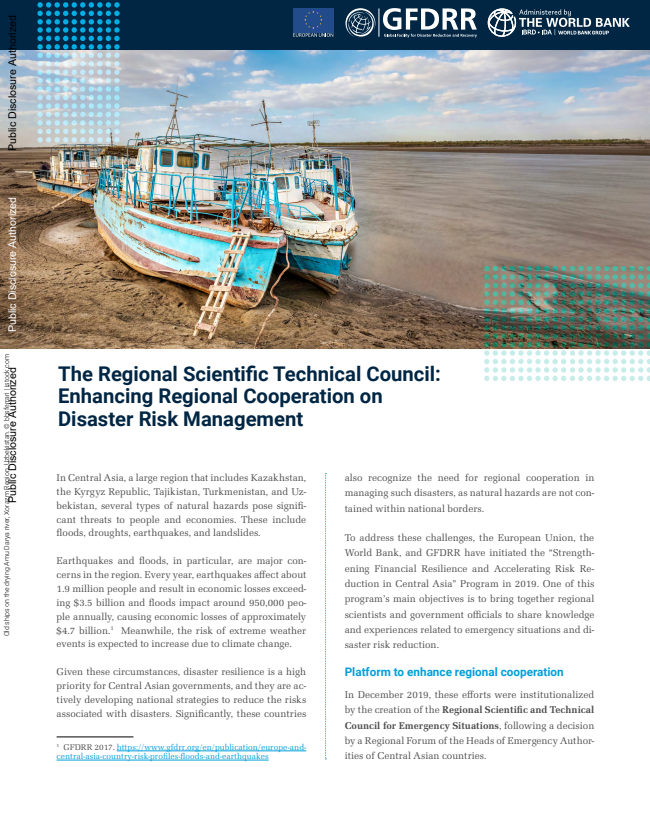In Central Asia, a large region that includes Kazakhstan, the Kyrgyz Republic, Tajikistan, Turkmenistan, and Uzbekistan, several types of natural hazards pose significant threats to people and economies. These include floods, droughts, earthquakes, and landslides. To address these challenges, the European Union, the World Bank, and GFDRR have initiated the “Strengthening Financial Resilience and Accelerating Risk Reduction (SFRAAR) in Central Asia” Program in 2019. One of this program’s main objectives is to bring together regional scientists and government officials to share knowledge and experiences related to emergency situations and disaster risk reduction. In December 2019, these efforts were institutionalized by the creation of the Regional Scientific and Technical Council for Emergency Situations, following a decision by a Regional Forum of the Heads of Emergency Authorities of Central Asian countries. The close cooperation between the World Bank and the Council has been essential to the success of the SFRAAR Program, and as the Program concludes in 2024, the Council will remain a firm foundation for collaboration and will contribute to increasing the region’s long-term disaster resilience.
The Regional Scientific Technical Council: Enhancing Regional Cooperation on Disaster Risk Management
September 18, 2023

